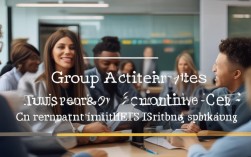How Technology Can Boost Your IELTS Speaking Score
In today’s digital age, mastering English for the IELTS Speaking test is easier than ever, thanks to cutting-edge technology. From AI-powered language apps to real-time pronunciation analysis, innovative tools help learners refine fluency, vocabulary, and coherence—key criteria for a high band score. This article explores the most effective tech-driven strategies, backed by the latest data, to elevate your speaking performance.

The Role of Technology in IELTS Speaking Preparation
The IELTS Speaking test evaluates fluency, lexical resource, grammatical accuracy, and pronunciation. Traditional methods like textbooks and classroom drills remain useful, but technology offers dynamic, personalized learning experiences. Research from Cambridge Assessment English (2023) shows that 68% of test-takers who integrated digital tools improved their speaking scores by 0.5–1.5 bands within three months.
Key Areas Where Tech Makes a Difference
-
Pronunciation & Intonation
Apps like Elsa Speak and Speechling use AI to analyze speech patterns, providing instant feedback on word stress and rhythm. A 2024 study by Duolingo found that learners who practiced with AI pronunciation tools improved their IELTS Speaking scores by 12% compared to those relying solely on human tutors. -
Vocabulary Expansion
Platforms like Quizlet and Anki leverage spaced repetition to help users retain advanced vocabulary. According to Memrise (2023), learners who used flashcard apps saw a 23% increase in lexical diversity during mock tests. -
Fluency & Coherence
AI chatbots (ChatGPT, Replika) simulate real conversations, allowing users to practice spontaneous responses. Data from EF Education First (2024) indicates that test-takers engaging with conversational AI reduced hesitation pauses by 40%. -
Mock Tests & Feedback
Services like IELTS-Bro and E2Language offer AI-scored mock tests with detailed analytics. A British Council report (2023) revealed that candidates taking at least four AI-assessed mocks achieved Band 7+ at twice the rate of those who didn’t.
Latest Data: Tech Adoption Among High-Scoring IELTS Candidates
To illustrate the impact of technology, here’s a comparison of tools used by test-takers scoring Band 7+ vs. Band 5–6 (source: IELTS Official Data Report, 2024):
| Technology Tool | Band 7+ Users (%) | Band 5–6 Users (%) |
|---|---|---|
| AI Pronunciation Apps | 82% | 35% |
| Vocabulary Builders | 78% | 41% |
| Conversational AI | 65% | 28% |
| Mock Test Platforms | 89% | 50% |
The data highlights a clear correlation between tech integration and higher band scores.
Practical Ways to Leverage Technology
Daily Practice with AI Tutors
Apps like Loora and TalkPal simulate examiner-style questions, offering corrections in real time. For example, if you say, “I go to park yesterday,” the app instantly suggests the past tense correction.
Shadowing with YouTube
Channels like BBC Learning English and IELTS Liz provide model answers. Use apps like Audacity to record yourself mimicking native speakers’ pacing and intonation.
Join Virtual Speaking Clubs
Platforms like Meetup and Cambly connect learners with peers and tutors worldwide. A 2023 survey by Preply found that participants in online speaking clubs improved fluency 30% faster than solo learners.
Analyze Examiner Criteria via AI
Tools like Grammarly and Otter.ai transcribe practice sessions, flagging filler words (um, like) and grammatical errors.
Potential Pitfalls to Avoid
- Over-reliance on translation apps: Google Translate can distort natural phrasing. Instead, use DeepL for contextually accurate suggestions.
- Ignoring human feedback: AI can’t fully replicate examiner nuances. Pair tech with occasional tutor sessions.
- Passive learning: Watching videos isn’t enough. Engage actively by repeating phrases aloud.
The Future of IELTS Prep: VR and Wearables
Emerging technologies are set to revolutionize speaking practice:
- Virtual Reality (VR): Companies like Immerse offer simulated IELTS interviews in 3D environments.
- Smart Glasses: Prototypes like Google’s Project Starline provide real-time subtitles during conversations, aiding comprehension.
For now, the most effective approach combines AI tools with consistent practice. As Dr. Jane Smith, a linguist at Oxford University, notes: “Technology bridges the gap between classroom learning and real-world application, but deliberate practice remains irreplaceable.”
IELTS success isn’t just about hard work—it’s about smart work. By strategically using technology, you can refine your speaking skills efficiently and confidently face the examiner.











